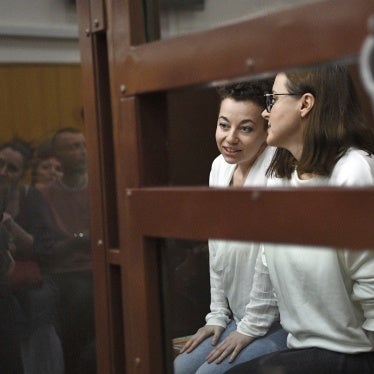One balmy August night in 2012, a US drone strike killed five men gathered behind a mosque in Khashamir, a village in southeast Yemen. Three were suspected members of Al-Qaeda in the Arabian Peninsula (AQAP). The other two were pillars of their community.
One was Salim bin Ali Jaber, a cleric who had preached against AQAP’s violent tactics. The other was his cousin Walid, a policeman. The suspected AQAP members had approached Salim Jaber to tell him to stop preaching against the group, witnesses and relatives told me.
On Wednesday May 27, in an unprecedented case against Germany, the Verwaltungsgericht of Cologne will hear evidence on behalf of those relatives. The Yemeni claimants allege that Ramstein, the US air base in Rheinland-Pfalz, was involved in the drone strike that killed their loved ones. Germany, they argue, is violating its constitutional duty to protect the right to life by allowing the United States to use Ramstein for its lethal drone operations.
Ramstein is the hub of the covert US drones program, according to an investigative report by Der Spiegel and the Intercept. The Merkel administration counters that the US has provided assurances that no drones are commanded or controlled from Germany. That language evades the important technical role the base plays, the claimants argue.
Extending Germany’s right to life to a non-German citizen in a foreign land is untested legal ground, but Berlin should take notice. US drone strikes reportedly have killed at least 444 people in Yemen alone. While the US refuses to say how many of those killed were civilians, there is no reason to assume that the Jabers will be the only Yemenis to take such cases to German courts.
However the Verwaltungsgericht ultimately rules, the German government should ensure that foreign forces are not using Ramstein to carryout unlawful strikes—those that indiscriminately or disproportionately kill civilians during armed conflict or that, outside armed conflict situations, kill people who do not pose an imminent threat to the lives of others. The government also should press the US to shed more light on its covert killing program so that when strikes do go wrong, victims know where to turn for redress.
Germany’s close security cooperation with the US is no reason to shy away from this topic; on the contrary Berlin can use its influence with Washington to try to steer it toward a legally sound course.
While the US insists civilian deaths in drone attacks are rare, it almost never acknowledges strikes or how many people they kill, unless victims are Americans or Western allies.
The relatives of Salim and Walid Jaber have yet to receive any US acknowledgment of the strike at Khashamir, much less an apology. A classified US document obtained by the Intercept shows that Washington knew two days after the attack that it had killed “possible bystanders” including an anti-AQAP cleric. But it took two years for the Jabers to get compensation—a back-door cash payment of $100,000 from a Yemeni intelligence official, who said the money came from the US.
The double-standard is not lost on the Jaber family. “It was a great shock,” relative Faisal Jaber told me, of hearing Obama’s apology. The message the US is sending, Jaber said, is that, “Whether we are innocent or not, Obama does not care how many Yemenis he kills.”
Earlier this month, May 13, 10 nongovernmental groups, including Human Rights Watch and two organizations representing the Jabers—the European Center for Constitutional and Human Rights and Reprieve—called on the Obama administration to adopt a systematic approach for all counterterrorism strikes in which civilians are injured or killed, regardless of nationality. The US should conduct thorough and independent investigations into such strikes, including the one that killed the Jabers. It should make results public, and provide redress to civilian victims.
Germany should press the US for such a system, for both moral and strategic reasons.
The strike in Khashamir blew the Jabers across the mosque grounds. When villagers look at photos of the two men’s scattered remains, “they think of America,” Faisal Jaber said.
If the Merkel government does not ensure it plays no role in such strikes, it runs the risk that when villagers look at these images, they will think of Germany as well.









